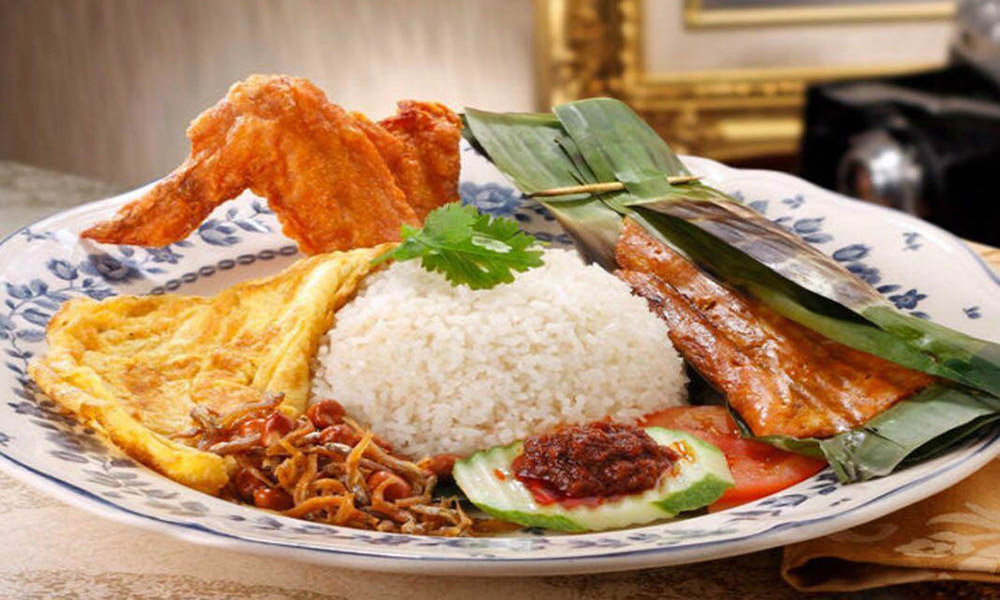By Li Yen
Since 1992, T’ang Quartet has been embarking on critically acclaimed adventures with a purpose – to bring music appreciation to a larger audience.
Also known as Singapore’s first professional string quartet, the name ‘T’ang’ is formed by incorporating the last names of each quartet’s members – Ang Chek Meng (2nd violin), Ng Yu-Ying (1st violin), and brothers Leslie Tan (cello) and Lionel Tan (viola). In addition, ‘T’ang’ denotes Tang Dynasty – a symbol of China’s golden age of cultural expression, as well as a representation of their Asian roots.
Trained in London and Moscow, the quartet’s performances feature a creative blend of East and West, attracting both contemporary and traditional audiences.
Aspiring to make classical music popular in Singapore, the quartet has been presenting music in stylish and innovative ways to delight local and foreign audiences for over two decades.
“We try to communicate the music like telling a story to the audience. We think this is the most important part of a performance,” shares Lionel.
In today’s society, where humanity’s value is often reduced to the monetary, the quartet feels that the arts will enrich our existence and reconnect us to the intrinsic value of life with imagination and joy.
It’s wonderful that we work hard to provide for our families, but time spent visiting art galleries or attending concerts can bring lots of joy too!
– Ang Chek Meng,
2nd violin, T’ang Quartet
“It’s wonderful that we work hard to provide for our families, but time spent visiting art galleries or attending concerts can bring lots of joy too!” exclaims Chek Meng.
Leslie asserts, “Don’t be so focused on material things like money, and don’t be afraid of having an opinion. And speak up!”
And T’ang Quartet’s philosophy in one sentence?
“Passion, honesty, commitment and grit to get to your goal,” says Lionel.
Yu-Ying adds, “Perseverance… but always with passion!”
Interview with T’ang Quartet
When did your love for music start?
Leslie: I grew up in a household that loved music. Mom played the piano, Dad could play the fife, the bugle. He also taught himself the violin and piano. I started on an ancient foot-pedalled organ – you had to pedal to get the bellows to produce air to make tones! Then I graduated to the piano when I was 10. Cello was just serendipity. The school was giving cheap lessons and I took up the offer. That was when I was 12. Never looked back since!
Lionel: I don’t know exactly, but music was around me quite a lot. My dad listened to trumpet music, Frank Sinatra, Nat King Cole, whilst my mum tinkled her favourite Für Elise on the piano. I suspect she could only play one piece.
Chek Meng: I started learning the violin because I was always fighting my two elder sisters for the chance to play on the piano we shared at home. I loved banging away and making loud noises. Hated early violin lessons because my teacher was terribly strict! I enjoyed performing, though, as it would take me to a different “world”. Practice was tougher because music requires hours of concentration and repetitions and it was not fun for a seven-year-old! But as I became more accomplished instrumentally, I realised that making music was something magical. Now I cannot imagine living life without music.
Yu-Ying: I guess since as young as five years old, that’s when I started learning music. Although I probably didn’t know much about “love” yet… I dreaded practising of course, but I never wanted to quit because whenever I had a chance to perform, I would thoroughly enjoy it!
What is the importance of music in your life?
Yu-Ying: Music has surrounded me all my life. I grew up not only having strong influence from classical music, but also embraced pop music to Cantopop! I also tried breakdancing during my secondary school days, so I can love and appreciate different genres of music. It’s enriching for our lives… well, not all music I suppose. It connects people.
Tell us a memory or an experience where a simple tune touched you and showed you something about life.
Yu-Ying: Not exactly a simple tune… but it was the slow movement of Gustav Mahler’s Symphony No. 5. It was introduced to me by my mentor, Mr Jiri Heger, during one lesson when I was still a teenager. He was trying to make me more musically liberated, so he sat me down and played that slow movement on his stereo. I sat there with his headphones for over 10 minutes, (and) when I finished listening to that movement, I broke down in tears! It changed my playing drastically.
Tell us more about your experiences. How have you been influenced?
Leslie: I was 16 when I won a scholarship to study at Trinity College. It was scary. It’s time away from home. But I loved every moment of it. I stayed in a bedsit next to my professor’s house, so I had up to three lessons a week.
Russia was a very different experience. I was 29! It was awful to be in a class of 18-year-olds. The pressure was immense. I knew I had a lot to catch up on. Music school in Russia was the Holy Grail and to be accepted at my very tender age of 29 was a shock. They probably needed my fees. Anyway, I soon got into the hang of things. Russia in the ‘90s was exciting. Chance was afoot everyday. Life was tough. But culture was all around, and the passion for it was evident not only in the conservatory, but also in the everyman!
All my teachers taught me how to think, how to practise. That’s what I hope to impart to my students – how to think!
Lionel: Every teacher and tradition has something that leaves an imprint in your mind. It is up to us to find what makes sense to us and that forms your musical DNA.
Chek Meng: Jean was like a mom and she taught me a lot about being professional, like punctuality. Gruenberg was very patient, but very particular about musical details. Lessons with the members of the Amadeus were really something else! It was rather confusing because different members would say conflicting things and it was then that I realised I needed to be a sponge and take in all the different views and make my own decisions.
Yu-Ying: Both of my professors have different influences on my development as a violinist during my days at the Royal Academy of Music. Myerscough was very direct and set quite a benchmark of how much I needed to work in order to survive in that competitive environment in my first two years. In my remaining two years, Gruenberg helped and pushed me further to be more sensitive and in tune with my soul and what I want to say with my music. He introduced a whole new palette of tone colours and dimensions in my violin playing. I’m very grateful to both of them!
Which is your most memorable performance and why? How do you get your mind prepared right before a performance?
Chek Meng: I am very lucky to have performed in many of the most important concert halls and music festivals. Some of the most memorable ones would be the quartet’s performances at the Wigmore hall, the Ozawa Hall in Tanglewood as well as the esteemed Berliner Philharmoniker hall.
Every performance is fun yet nerve-racking! In my younger days, I would just get on stage and play without fear. However, in my mid-teens, I started to feel the weight of audience expectations as well as a nagging fear of making mistakes. Through the years, I have learned that I need to be really “low-energied” before getting on stage. Some musicians thrive on adrenaline, but that would really bring me over the edge.
Being very well-prepared is also a must for me, otherwise there would always be that nagging thought that I am not doing justice to the music I am going to perform!
Are there any musicians whom you admire, and why? If you could collaborate with any artists – living or dead – whom would you choose and why?
Yu-Ying: There are many great musicians in the world whom I admire and I have been fortunate enough to have either had lessons from or work with a few of them. But there is only one who has influenced me the most throughout my musical life. He was the one who opened my heart to music, dug out the sensitivity in me to feel beyond what I hear in recordings or performances. He made me believe in myself and that, even with my limited ability and talent at such a young age, if I truly love what I do, I will succeed! He is none other than my mentor and dear friend, Mr Jiri Heger.
Chek Meng: Though I am a classical musician, my musical icon is Freddie Mercury from Queen! I really admire his energy and sheer electrifying personality. Good music exists in all genres and I really think that people will always remember his songs.
Do you think pursuing a classical music career in Singapore is tough? What advice would you give to young violinists and young musicians about pursuing a career in music?
Leslie: There are a lot more local musicians and a lot more performing groups now and there is the Yong Siew Toh Conservatory of Music – I never thought I would see that in my lifetime! Those are really exciting and wonderful developments. But on the flip side, Singaporeans being Singaporeans, many parents still want their kids to pursue a less creative career path. Creativity is not valued in Singapore. We talk about it but many shy away from it. To our young aspiring musicians: Only you can make the change! Do it now! Don’t worry about tomorrow!
Lionel: Go for it! Too many people work with ambition and fear but without passion in this world. Don’t add to that.
Chek Meng: Practise like you are performing and perform like you are practising! This was the best piece of advice my mentor Jiri Heger impressed upon me. It is absolutely true if you want to be a performer. I used to suffer from terrible stage fright because there was always this pressure to not make mistakes. You can always be more prepared for a performance, but as long as you have prepared well, you should just get on stage and enjoy sharing with the audience!
About T’ang Quartet
Leslie Tan attended the Trinity College of Music and Royal College of Music in London, and he went to the Tchaikovsky-Moscow State Conservatory as a graduate-assistant of Natalia Shahkovskaya.
Lionel Tan was under the tutelage of Jiri Heger and studied at the Royal College of Music in London, where he graduated in performance and pedagogy. He also studied the viola with Martha Katz and Karen Ritscher in the United States, as well as Margaret Major, Christopher Wellington and Milan Skampa in Europe.
Ang Chek Meng studied at the Royal Academy of Music in London and was trained under Jean Harvey, Erich Gruenberg and members of the Amadeus Quartet.
Ng Yu-Ying graduated from the United Kingdom’s (UK) Royal Academy of Music with first-class honours, and studied with Clarence Myerscough and Erich Gruenberg.
For more information about T’ang Quartet, visit their website at www.tangquartet.com
This Is Singapore is a fortnightly feature that delves into the lives of inspiring and talented individuals in Singapore. Read all our interviews here: http://bit.do/thisissingapore
















